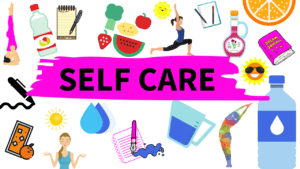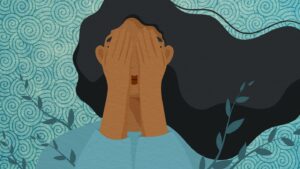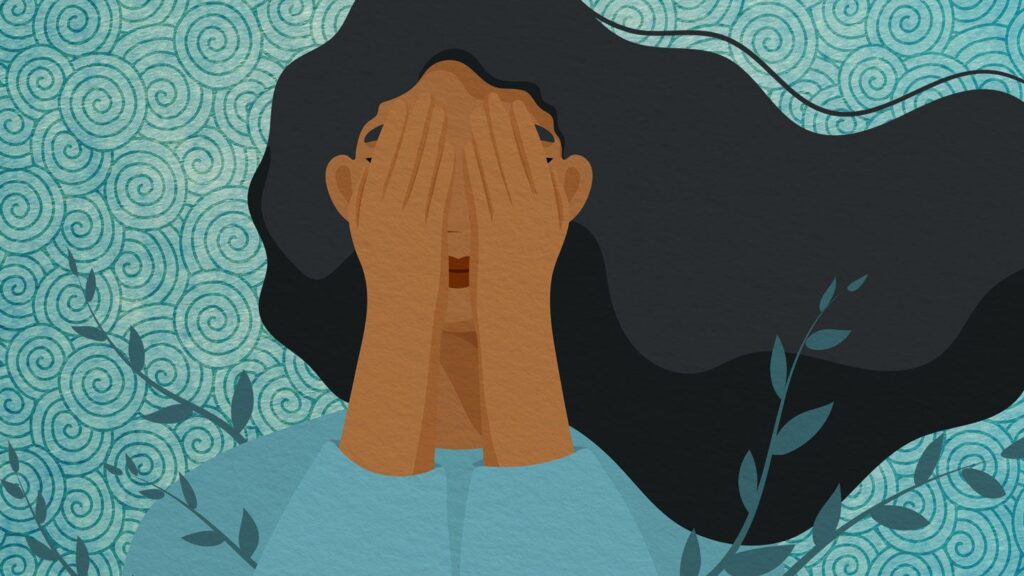Depression is a common mental health condition that affects millions of people worldwide. While there are various prescription drugs available to treat this illness, they may come with unwanted side effects and can be expensive in the long run. Luckily, there is Depression Non-Drug treatment that has proven successful for many individuals seeking relief from their symptoms. In this blog post, we’ll explore some effective ways to improve your mood and manage depression without relying on medication.”
Contents
What Is Depression?

Depression is a very common mental health disorder that can have a profound impact on an individual’s life. Symptoms of depression can include:
- a persistent low mood
- a loss of interest or pleasure in activities that were once enjoyed
- feelings of guilt, worthlessness, or hopelessness
- low self-esteem
- poor concentration and memory
- reduced energy levels and fatigue
- insomnia or excessive sleeping
- loss of appetite or overeating
- physical aches and pains
- suicidal thoughts or thoughts of self-harm.
The causes of depression can vary from person to person. It can be triggered by a difficult life event, such as bereavement or job loss, or simply the result of chemical imbalances within the brain.
Non-Drug Treatment Options for Depression
Other than medication, there are a variety of non-drug treatments for depression that can be effective. These treatments generally focus on lifestyle changes and therapies to help manage symptoms.
Therapies

Several effective therapies for depression can be used alone or in combination with medication. These include:
- Cognitive Behavioral Therapy (CBT) is a type of therapy that helps people identify and change negative thinking patterns and behaviors that contribute to their depression. CBT is an effective treatment for depression, and it can be done either in individual or group settings.
- Interpersonal Therapy (IPT) is another form of therapy that focuses on helping people improve their relationships with others. IPT can help treat depression by teaching people how to communicate better, resolve conflicts, and set boundaries.
- Light therapy: This involves exposure to bright light, which can help improve mood and energy levels in people with seasonal affective disorder (SAD).
- Mindfulness-based therapies: These approaches involve paying attention to the present moment and accepting thoughts and feelings without judgment. They can help treat both depression and anxiety.
- Dialectical behavior therapy (DBT): This is a type of therapy that focuses on helping people accept their emotions and find healthier ways to manage them. It can be useful in treating depression, especially when it co-occurs with a borderline personality disorder.
- Acceptance and commitment therapy (ACT): This approach emphasizes living in the present and accepting one’s emotions rather than trying to change them. It is beneficial for people with depression.
These are some of the therapies that can be used to help treat depression. It’s important to talk with your doctor or mental health professional before starting any therapy, as the best treatment for you may depend on your specific symptoms and needs.
Self-Help Strategies

In addition to therapy and medication, there are also several self-help
- Get regular exercise. Exercise releases endorphins, which have mood-boosting effects. A moderate amount of exercise is the key – too much or too little can make your symptoms worse.
- Spend time outdoors in nature. Being in nature has been shown to improve mood and reduce stress levels. Take a walk in the park, go for a hike, or simply sit outside and soak up some vitamin D from the sun.
- Connect with others socially. Spending time with loved ones and close friends can help lift your spirits and make you feel more supported. If you’re feeling isolated, consider joining a support group or online community related to your interests.
- Make sure you’re getting enough sleep. Depression can cause insomnia, so it’s important to make sure you’re getting enough shut-eye each night. Aim for 7-8 hours of sleep per night and create a relaxing bedtime routine to help you wind down before hitting the hay.
- Eat a healthy diet. Eating nutritious foods helps improve energy levels and mood, while processed foods and sugary snacks can make depression symptoms worse. Make sure to include plenty of fruits and veggies in your diet.
- Take time for yourself. Make sure you’re carving out time for activities that bring you joy—whether it’s reading, writing, painting, or playing a musical instrument. Doing something creative can help lift your spirits and take your mind off negative thoughts.
- Practice mindfulness and relaxation techniques. Mindfulness helps you learn to stay in the present moment without judgment, while relaxation techniques can help reduce stress and tension. Try yoga, meditation, or deep breathing exercises to help calm your mind and body.
Support Groups
Another way to get help with depression is to join a support group. These are groups of people who have similar experiences and can provide they can provide valuable advice, understanding, and comfort.
Support groups offer members a safe space to talk openly about their struggles and successes, helping them gain insight and stay motivated in their recovery process. They also allow members to make meaningful connections with others who understand what they’re going through.
Many types of support groups cater to different kinds of depression and needs, including online forums and in-person meetings. You may find an already established group or decide to create your own.
How To Get Help for Depression?
The help for depression that is available to individuals can range from self-care and lifestyle changes to talking therapies and medications. It’s important to remember that different treatments will suit different people as everyone responds differently.
- The first step in seeking help for depression is talking about your symptoms with someone you trust, such as a family member or friend. This can be a difficult conversation to have, but it is important to seek support.
- Your doctor can provide advice on different treatment options and help you decide which is most suitable for your situation. It’s important to understand the potential benefits and risks of each option so that you can make an informed decision about what’s best for you.
- Take a look at the different types of talking therapies such as cognitive behavioral therapy (CBT), psychodynamic therapy, interpersonal therapy, and counseling. These are designed to help you understand and manage your symptoms better by allowing you to talk about what’s causing your depression.
Benefits of Non-Drug Depression Addictive Treatment

There are many benefits to using non-drug treatments for depression, including:
- Improved mental clarity: The use of non-drug treatments can help to improve mental clarity and reduce confusion or feelings of disorientation that may accompany depression. This improved clarity can be beneficial in allowing a person to better understand their symptoms, develop coping skills, and identify potential triggers for episodes of depression.
- Reduced side effects: Many anti-depressants can cause unpleasant and sometimes dangerous side effects, including weight gain, diminished libido, fatigue, insomnia, and even suicidal tendencies. Non-drug treatments are generally free of such risks, allowing people to effectively manage their depression without putting their physical health at risk.
- Improved self-esteem: Non-drug treatments for depression can help to improve a person’s self-esteem and confidence, which may have been affected by the depressive episode itself. Such treatments may include psychotherapy, exercise, mindfulness practices, and even lifestyle changes such as optimizing sleep hygiene or improving diet.
Cons of Non-Drug Depression Addictive Treatment

There are also a few drawbacks to non-drug depression treatment.
- Firstly, it takes more effort and dedication from the patient compared to taking medication. The effects of non-drug treatments can take weeks or months to manifest, so the patient must be patient and persistent in sticking with their treatment plan.
- In addition, because these treatments deal directly with psychological issues rather than biochemical ones, the progress achieved through them can be fragile and short-lived if steps are not taken to ensure that the patient can maintain their mental health once their depression has been addressed.
- Finally, non-drug treatments cannot provide a “quick fix” like medication can—the treatment process often requires that the patient confront issues that can be difficult and uncomfortable, so it may not be the best choice for those who are looking for a quick solution.
Conclusion
Non-drug treatment for OCD is an important part of treatment and can have many benefits for individuals with the condition. There are many different non-drug treatments for sleep apnea, such as lifestyle changes, weight loss, positional therapy, and mouthpieces. It is important to discuss these options with a doctor to determine which approach may be best suited for an individual’s specific needs.
Non-drug treatments may be able to reduce or even eliminate the need for medications or other more invasive treatment options. In any case, it is important to find a solution that works best for each person to get the most out of life.
For more information, please contact MantraCare. Depression is a mental illness characterized by persistent feelings of sadness, hopelessness, and loss of interest in daily activities. If you have any queries regarding Online Depression Counseling experienced therapists at MantraCare can help: Book a trial Depression Therapy session


